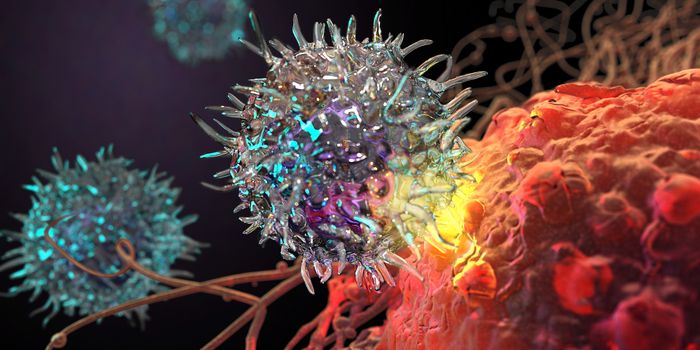A study from the University of Japan finds that certain compounds in onions have
anticancer effects against ovarian cancer. Onion lovers rejoice!
Known for its polarizing taste and pungent smell, onions are high in many vitamins and antioxidants. Studies have linked onions to health benefits, like strengthening the immune system, lowering blood pressure, and even fighting cancer.

One compound, aptly called onionin A (ONA), was recently identified by researchers at the Kumamoto University in Japan. ONA is high in sulfur and researchers believed it can squelch a tumor microenvironment. In particular, the team was especially interested in how ONA may act on epithelia ovarian cancer (EOC), which is often associated with tumor-associated macrophages.
In pre-clinical trials, the researchers treated EOC cells with the onion-derived compound. They found that ONA directly suppressed cancer cell proliferation. Furthermore, the effect appeared synergistic when combined with other anticancer drugs.
When the compound was used to treat a mouse model of EOC, the team found increased survival time. Molecular research also revealed that the signals for chemo-resistance was abolished with the application of ONA, suggesting a mechanism for how ONA acts on cancer cells.
The team concluded that “ONA is considered useful for the additional treatment of patients with ovarian cancer owing to its suppression of the pro-tumor activation of [tumor-associated macrophages] and direct cytotoxicity against cancer cells."
Of note, this first study to investigate the effect of an onion compound in ovarian cancer did not find any side effects in the animals. This, combined with the promising positive anticancer effects, could mean a faster path to human clinical trials and treatment.
Ovarian cancers have one of the highest mortality rates, ranking fifth in cancer deaths among women. Of the 22,000 new estimated cases of ovarian cancer this year, only 10-15 percent of patients will be successfully treated. Unfortunately, in the large percent of remaining patients, the cancer doesn’t respond to treatment, or will inevitably return with a vengeance. As such, research into low risk, natural compounds like ONA may be fruitful to fight this deadly disease.
Additional sources:
MNT









